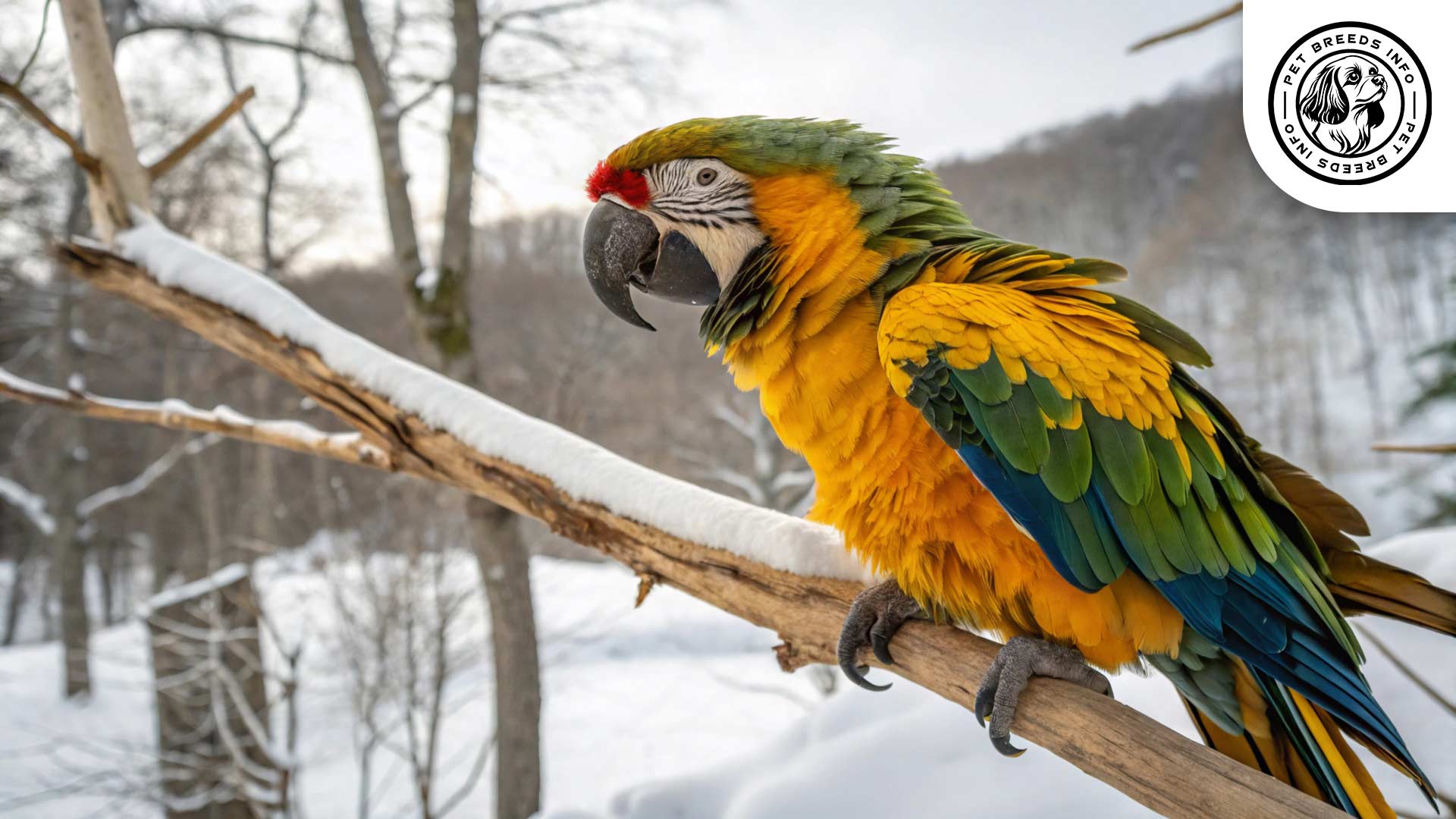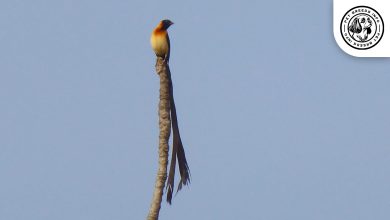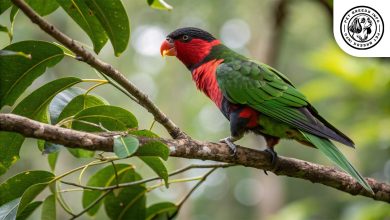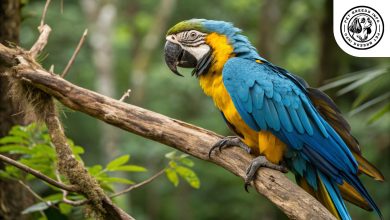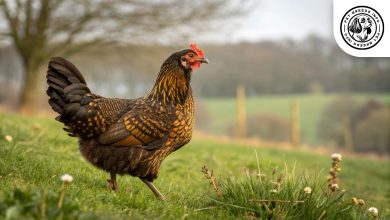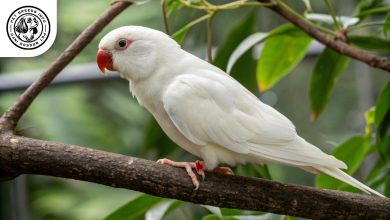Winter Gold Macaw (Hybrid) Bird: Personality, Lifespan, Food & Care
General Introduction of the Breed
The Winter Gold Macaw is a stunning hybrid parrot resulting from the crossbreeding of the Scarlet Macaw (Ara macao) and the Military Macaw (Ara militaris). This vibrant bird is popular among bird enthusiasts for its striking coloration and engaging personality. Hybrid macaws are bred in captivity and do not naturally occur in the wild.
As a relatively recent hybrid, the Winter Gold Macaw does not have a precise region of origin, but it is commonly bred in aviaries across North America and Europe by experienced breeders aiming to enhance certain traits.
Table of Contents
| Common Name | Winter Gold Macaw |
| Scientific Name | Ara macao × Ara militaris (Hybrid) |
| Origin | Captive-bred hybrid (North America, Europe) |
| Size | 30–34 inches (76–86 cm); 900–1200 grams |
| Lifespan | 50–60 years |
| Egg Color | White |
| Clutch Size | 2–4 eggs |
| Temperament | Social, intelligent, high-energy |
| Cold-Hardy | No – needs a warm, stable environment |
Physical Characteristics
The Winter Gold Macaw inherits physical traits from both parent species, resulting in a striking mix of colors. These birds are typically medium to large macaws, measuring between 30 to 34 inches (76 to 86 cm) in length, with a wingspan of up to 40 inches (101 cm). Their weight ranges between 900 to 1,200 grams.
The plumage of the Winter Gold Macaw features a blend of vibrant green, yellow, and red tones, with some individuals displaying patches of blue on the wings. The head is often green, transitioning into gold and red along the body.
They have powerful, curved beaks that are well-adapted for cracking nuts and seeds. Their eyes are generally pale yellow or gold, framed by white featherless facial skin with fine black lines. The tail is long and tapered, resembling that of the Scarlet Macaw.
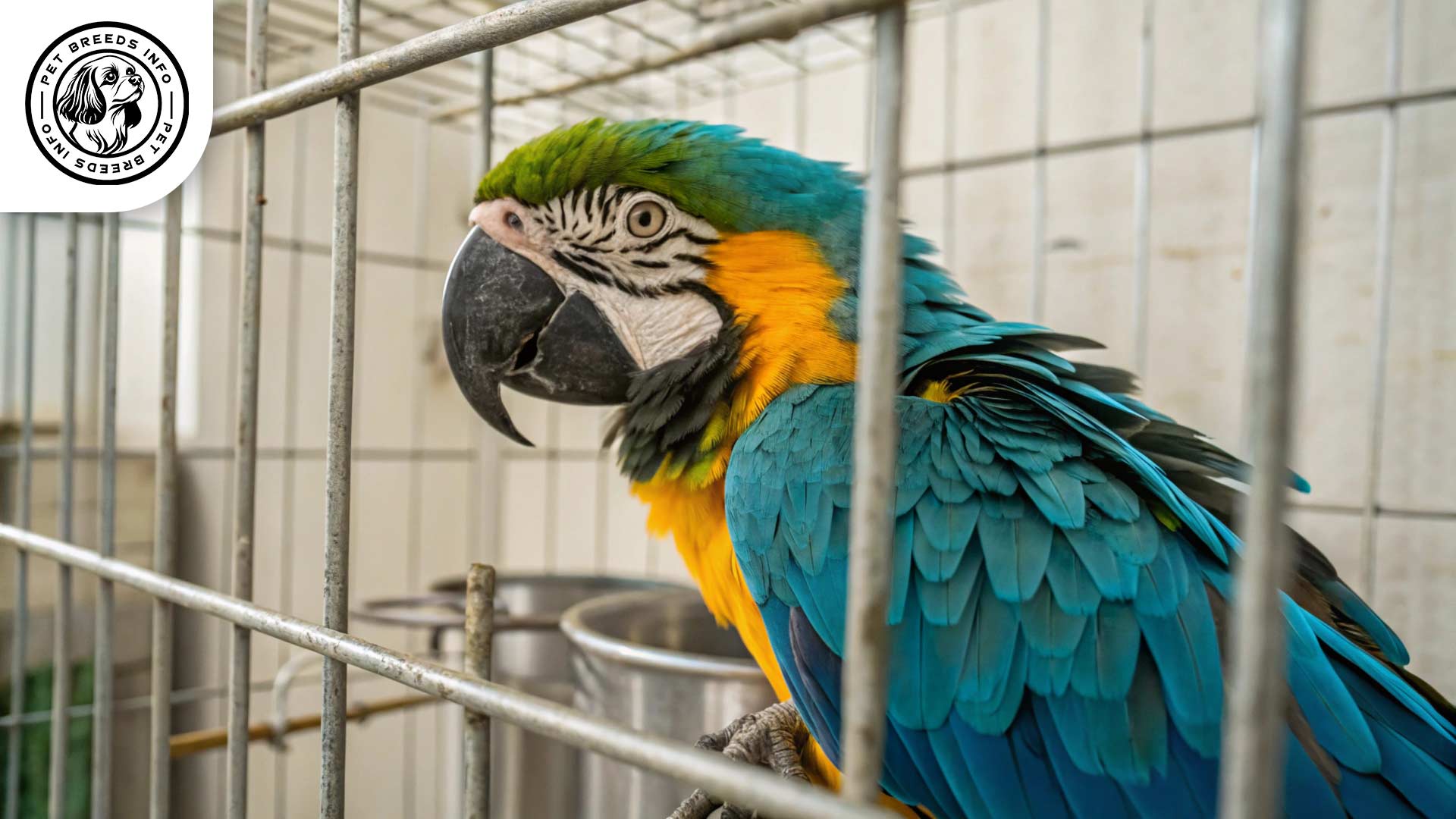
Personality and Temperament
The Winter Gold Macaw is an intelligent and social bird that thrives on interaction with its owner. Like most hybrid macaws, they are quick learners and can mimic words and sounds with practice.
They have a high energy level and require plenty of stimulation, including toys, puzzles, and social engagement. Without proper mental stimulation, they may develop destructive or noisy behaviors.
These macaws form strong bonds with their human caregivers and require regular interaction to stay happy. They do well with dedicated owners who can provide constant companionship and mental enrichment.
They are generally friendly but can be temperamental, especially if not properly socialized from a young age. They may not always get along with strangers or unfamiliar pets, so gradual introductions are essential.
Read More: White-rumped Munia
Care and Maintenance Requirements
Winter Gold Macaws require plenty of exercise, as they are highly active birds. Flying space is essential, so a large enclosure or regular out-of-cage time is necessary. A cage size of at least 36 x 48 x 60 inches (91 x 122 x 152 cm) is recommended.
They thrive in spacious environments, and a well-furnished aviary with plenty of perches, toys, and climbing structures is ideal. While they can adapt to apartments, they are best suited to homes with larger living spaces.
Macaws require minimal grooming but benefit from occasional misting or bathing to keep their feathers clean. Nail trimming may be necessary if the bird does not wear down its nails naturally. Beak maintenance is crucial, and they should be provided with chewable materials like wooden toys.
They are sensitive to extreme temperatures, so exposure to cold drafts or excessive heat should be avoided.
Diet and Nutrition
The Winter Gold Macaw thrives on a balanced diet consisting of high-quality pellets, fresh fruits, vegetables, and nuts. A proper mix of proteins, fats, and carbohydrates is essential for their health.
Foods such as avocado, chocolate, caffeine, alcohol, and salted or processed foods should be strictly avoided, as they can be toxic to birds.
Portion sizes vary based on the bird’s size and activity level. Fresh food should be offered daily, along with constant access to clean drinking water.
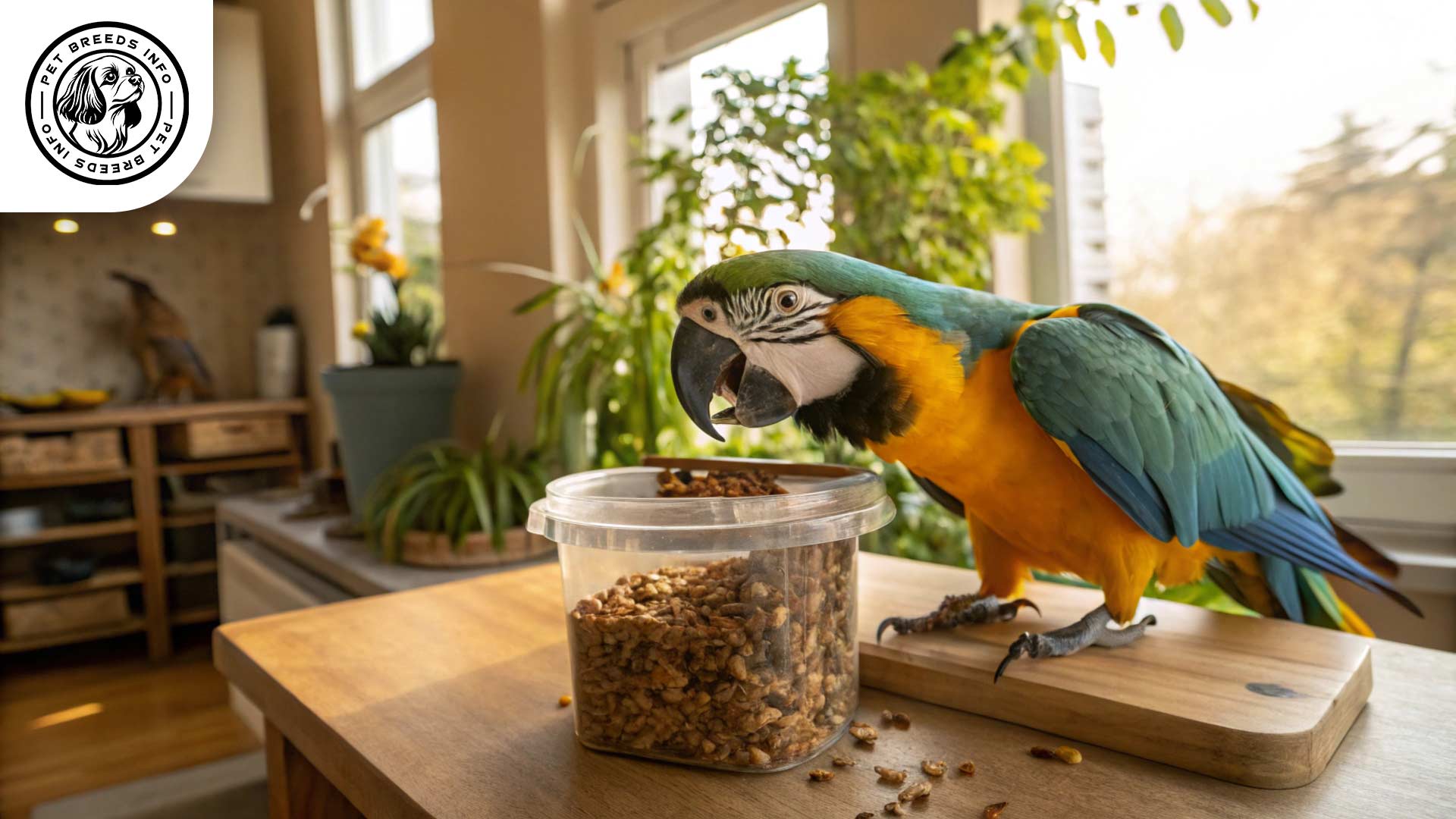
Health and Common Medical Issues
Like other macaws, the Winter Gold Macaw is susceptible to common parrot health issues such as psittacosis, beak and feather disease, and respiratory infections.
They are also prone to feather plucking if they experience stress or lack mental stimulation.
With proper care, these macaws have an average lifespan of 50 to 60 years, making them a long-term commitment.
Regular veterinary checkups, vaccinations, and parasite control are essential to ensure their long-term well-being.
Read More: Yellow Canary Bird
Training and Behavior Management
Training a Winter Gold Macaw requires patience, consistency, and positive reinforcement techniques. They respond well to treats and rewards when learning commands and new tricks.
Early socialization is crucial to prevent aggressive or territorial behaviors. Providing a structured environment with clear communication helps reinforce good behavior.
Macaws can be loud, and training them to regulate their vocalizations is important for maintaining a peaceful household.
Interaction with Other Animals and Humans
Winter Gold Macaws can develop strong relationships with their owners but require proper introductions when meeting new people or animals.
They can be affectionate with family members but may exhibit territorial behavior toward strangers if not socialized properly.
These birds are best suited for experienced bird owners or families who can dedicate time and space to their needs.
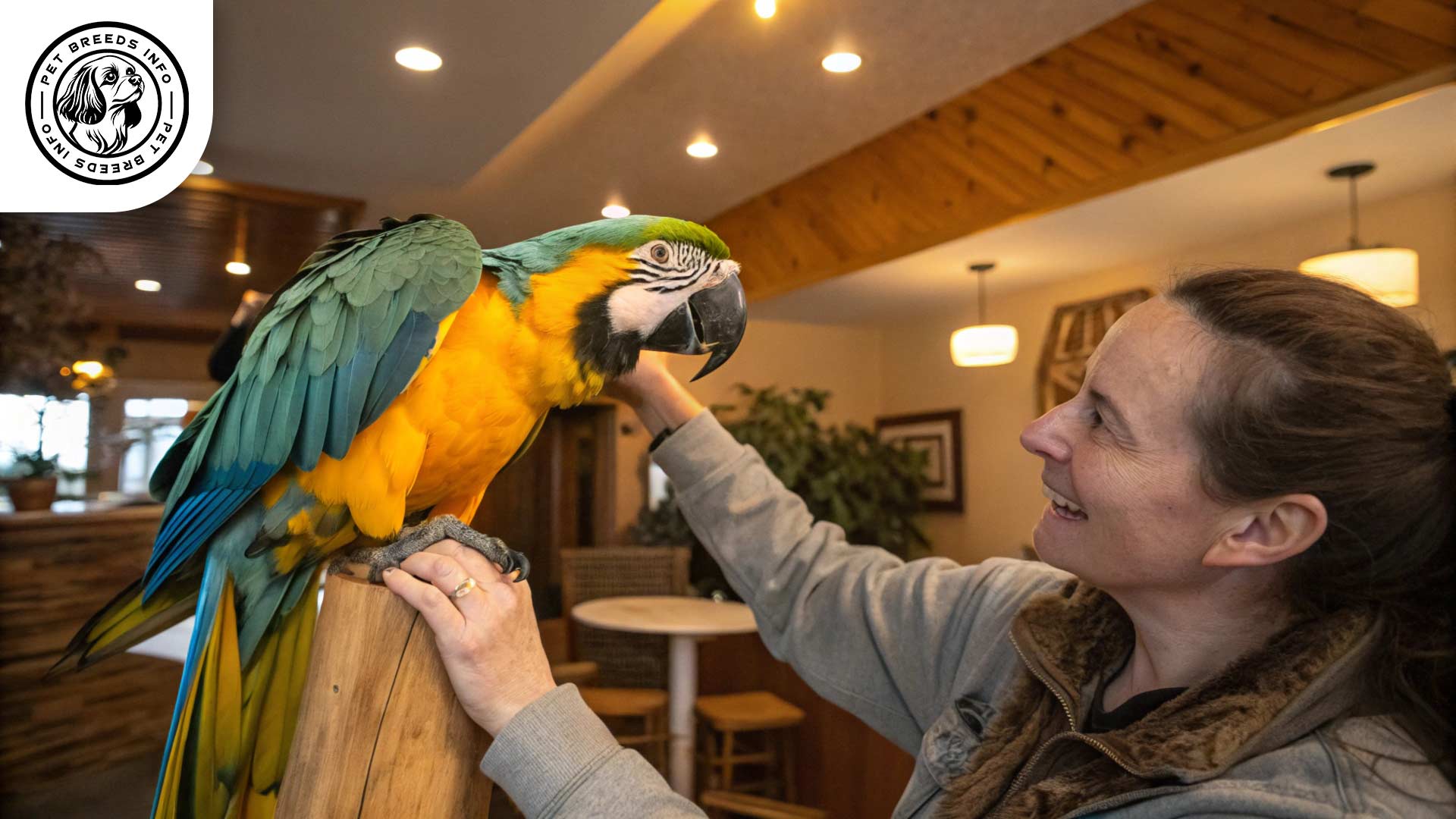
Price and Availability
The cost of a Winter Gold Macaw varies depending on breeder reputation, location, and availability, typically ranging from $3,000 to $5,000 USD.
Potential owners should seek reputable breeders or specialized bird adoption centers to ensure they acquire a healthy and well-socialized bird.
Read More: Wyandotte Chicken
Conclusion and Final Thoughts
The Winter Gold Macaw is a breathtaking hybrid parrot with an engaging personality, making it an excellent pet for experienced bird enthusiasts. They require significant attention, socialization, and mental stimulation to thrive.
The ideal home for a Winter Gold Macaw is one with a spacious environment, dedicated caregivers, and a structured routine that meets the bird’s physical and emotional needs.
Prospective owners should consider the long-term commitment, noise levels, and care requirements before choosing this vibrant and intelligent companion.
FAQ
Is the Winter Gold Macaw a natural species?
No, it’s a hybrid between a Scarlet and a Military Macaw, bred in captivity.
Are Winter Gold Macaws good talkers?
They can mimic words and sounds, especially with consistent training.
Do they make good pets for beginners?
Not ideal for first-time bird owners due to their size, needs, and long lifespan.
How noisy are they?
Like most macaws, they can be very loud—daily vocalization is expected.
How much space do they need?
A very large cage or aviary and daily out-of-cage time for flying and play.
